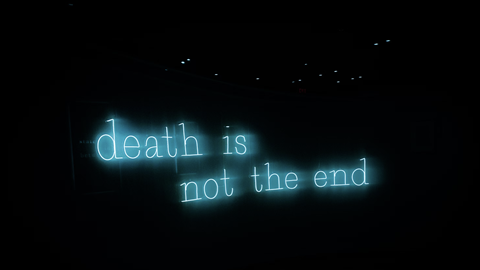Journalist Heather Tomlinson continues her exploration on near-death experiences in light of a recent Big Conversation on this topic
Near-death experiences (NDE) are a fascinating phenomenon, whatever your beliefs. Although they vary in detail, there are common elements (see this article). They usually lead to radical transformation in the people who experience them (see here). It is common for people to say they cannot find words for the extremes of love and goodness of God that they witness – or the horror, if they had a negative NDE.
Objectively, what can they tell us?
NDEs are common, and those who have them are convinced they are real
According to the International Association of Near Death Studies, which has no religious affiliation, between 4% and 15% of the population have experienced NDEs, and 98% of them now believe in an afterlife, whatever their previous beliefs. There are many shared elements in NDEs (see here).
They provide logical, scientific evidence that we are more than our physical bodies
The science vs faith debate is often pitched as being a battle between the spiritual and the physical, or “faith without evidence” and the cold, hard truth of science and the material world.
Philosophers mostly agree that this is simplistic. But even from a purely empirical, scientific perspective, NDEs provide evidence that consciousness can survive death, and that there is a lot more to life than the physical. Even scientific research papers come to this conclusion.
In one of the largest studies on people who had had cardiac arrests, 9% of people who survived reported an NDE – and the research itself states that it “supports other recent studies that have indicated consciousness may be present despite clinically undetectable consciousness”.
Some NDEs have objective, corroborating evidence
It is common to hear critics argue that NDEs cannot be verified due to their just being a person’s experience, however powerful the story. Sadly, some admit they faked their NDE stories. By their nature, many are subjective and rely on the interpretation of the experiencer, and our trust they are being honest.
Yet, some NDEs involve events that are verifiable by others. For example, Lee Strobel told Premier Unbelievable that he found multiple cases of corroboration including the case of Vicky Umipeg Noratuk. “She was blind virtually since birth, and yet during her near-death experience she could see for the first time,” he told Premier Unbelievable. “She saw people trying to revive her body, she saw plants, she saw birds, and then when she was revived, her blindness returned, her eyesight disappeared. As one medical researcher said – this is impossible.”
Read more:
Near-death experiences: 5 stories of changed lives
Do near death experiences contradict Christian belief and doctrine?
What is a near-death experience and what can it teach us?
Do consciousness and near-death experiences point to an afterlife?
Consciousness is complicated
Despite attempts by militant atheist philosophers such as Daniel Dennett (known as one of the “four horsemen of the apocalypse” for his fellowship with radical atheists Richard Dawkins and the late Christopher Hitchens) to explain consciousness from a purely materialistic point of view, experts are still perplexed. There is even an argument for God’s existence from the existence of consciousness. NDEs make a fascinating contribution to that discussion.
As Sharon Dirckx, Christian apologist and former neuroscientist, says in a recent Premier Unbelievable ‘Big Conversation’ that science can never explain the “qualia”, the experience that we have of being conscious – even if certain brain patterns are correlated. “The science gets you to connection…that the mind and brain are connected, but the scientific data doesn’t enable you to establish the nature of that connection or the relationship,” she said. “For that you have philosophy – but the science doesn’t get you to philosophy…If we are just our brains, [NDEs] pose more of a challenge to interpret. Arguably, they’re impossible.”
Like the Bible, NDEs have a powerful emphasis on the importance of love
A common theme in NDEs is that it is crucially important for us to serve and love others while we are on Earth. Even those who experience a negative or hellish NDE are usually aware that it is the consequence of having lived a life that harmed others or where there was no care or love of others.
One such NDEer, Howard Storm, was given a simple command by Jesus for his new life: “Love the person you are with.”
Get access to exclusive bonus content & updates: register & sign up to the Premier Unbelievable? newsletter!
We are not God
Some experiencers come back and have ideas opposed to Christian doctrine, other experiencers come to very different conclusions, and become passionate advocates for belief in Christ (see this article).
Despite attempts to put God in a box, NDEs suggest that he is much bigger than that. Humans have a tendency to want to believe God is in our control and within our capability to understand – NDEs challenge this. What they do provide is clear evidence that science does not have all the answers, and that the material, physical world is not all there is.
Their intensity and power reflect something much more vital and important than the material world, and suggest that what we choose to believe and to do on this Earth matters eternally.
Heather Tomlinson is a freelance journalist. You can find her on X @HeatherTomli or through her blog http://www.heathert.org























